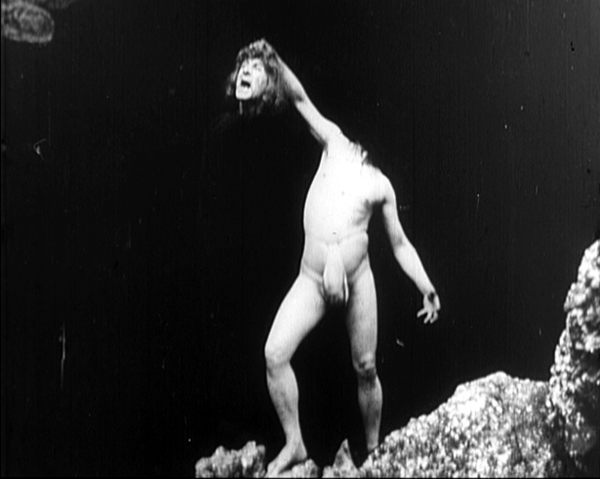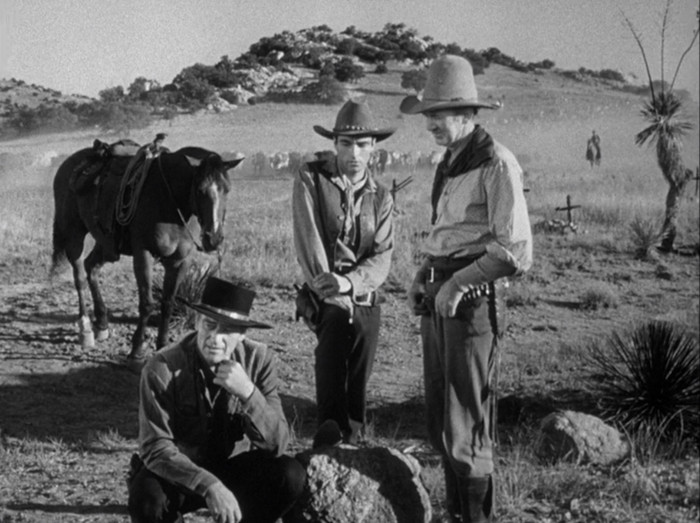I’ve reached the halfway point in my resolution to watch 50 movies made before 1950 in 2018 [see Part I | Part II | Part III]. The pace has quickened, but I’m still a movie or two behind (not bad since I only started in March). Plus, no cheating this time! All feature length flicks here, though a couple are short (but then, others are 2+ hours, so it evens out). Let’s get to it:
- Duck Soup (1933) – Over a decade ago, I put together a (mildly embarrassing) list of The Greatest Movies I’ve Never Seen. It wasn’t meant to be comprehensive or anything, but one of the areas I wanted to explore more was the Marx Brothers, so I put Duck Soup on the list. A few years later, after having watched the grand majority of the films on the original list, I made another list… that still had Duck Soup on it. Now it’s 2018 and I finally sat down and watched it. Lots of deadpan one-liners, puns, and a few wonderful sight gags (the mirror scene is a great bit of sustained brilliance), it’s kinda shocking how well the humor still works 80+ years later. I mean, I’m sure some of the jokes went over my head, but the comedic timing still kinda carries them, even if I didn’t get the reference. There’s some musical numbers that aren’t my thing, but the story is something of a political satire that is still kinda relevant today, even if I’m so sick of politics at the moment that I wasn’t going to sit down and dig through it all. It’s there if you want to do such a thing. It’s a fun little rapid-fire joke machine, which is enough for me. ***
- Red River (1948) – Howard Hawks directed this John Wayne and Montgomery Clift vehicle about a cattle rancher Dunson (Wayne) who intends an ambitious drive from Texas to Missouri. But as difficulties are encountered, Dunson becomes increasingly tyrannical to the point where even his adopted son Matt (Clift) participates in a mutiny. While pretty standard Western fare, this is so exceptionally well executed that it stands as an exemplar of the genre. Wayne is great, of course, but Montgomery Clift actually manages to hold his own.
The real hero of the film, though, is Howard Hawks. Unostentatious but meticulous, it’s not particularly showy, but you can always tell when you’re in the hands of a master, and this is no exception. In particular, he captures the arid landscapes and expertly frames the massive cattle drive. This isn’t a special effects extravaganza or anything, but the stampede scene is still quite impressive. Even simple, routine shots of the cattle herd come across as well done. The story covers a lot of ground and Wayne’s descent into madness is fertile territory for thematic heft, if you’re so inclined. But really it’s just a fun movie. It doesn’t shy away from the darker aspects of the West, but it has its heart in the right place, and the 2+ hour runtime flies by quickly. Well worth checking out. ***
- Stray Dog (1949) – Akira Kurosawa’s tale of a police detective (Toshirō Mifune) who loses his gun on a crowded bus; a gun that is later used in a crime. Mifune’s detective feels the weight of this and tries to find and reclaim his gun before more people are hurt. I don’t know if this is the first story about a cop who has lost their gun, but it’s the earliest example I’ve seen (and there are plenty to choose from). It’s got lots of great procedural bits too, as the young detective learns some tricks of the trade, deals with early forensics, and so on. It’s a tad long, but hey, it’s hard to find fault in a Kurosawa movie, and this is a pretty good one. ***
- L’inferno (Dante’s Inferno) (1911) – An early adaptation of Dante’s Divine Comedy (and Gustav Doré’s illustrations of same), this was apparently the first feature film made in Italy. While I’m sure it was amazing in its time, it falters a bit today. I mean, adapting Dante isn’t exactly an easy task to start with, and the Divine Comedy isn’t so much a narrative as it is a catalog of the afterlife, so an adaptation that consists of hefty intertiles and brief vignettes of the various circles of hell can drag a bit at times. That being said, the special effects were actually quite well done, and the film manages to cultivate a pretty eerie atmosphere throughout.

It’s clearly an influential film and worth watching for students of the horror genre, but it doesn’t have a ton of mainstream appeal anymore, even with the version featuring a Tangerine Dream soundtrack. Still, probably worth skimming on a free version on Youtube if you’re curious. **
- The Jungle Book (1942) – A pretty straightforward adaptation of Kipling’s story, focusing mostly on the sequences where Mowgli has a hard time adapting to the human village after having grown up in the jungle. While there’s lots of animal work, these components are naturally downplayed (the Shere Khan conflict is portrayed, but resolved quickly, with the remainder being a human story). The film looks pretty good, the animal work is decent, Sabu turns in an energetic performance as Mowgli, but I found the pace a bit disjointed and off. This was nominated for a Retro Hugo, but I think it will be pulling up the rear in my rankings… **
- Invisible Agent (1942) – The Invisible Man’s grandson is recruited by the allies to spy on Nazi Germany. Hey, it’s a pretty logical extension of the original premise, as an invisible man should make for a great spy, right? And the result is certainly very entertaining, with very well done special effects and a briskly paced story. The tone is rather more comedic than the series’ horror origins, but as sequels go, this seems to be one of the better Universal Monster sequels (granted, I haven’t seen them all, and I really need to rewatch the original Invisible Man sometime soon). Pretty good performances all around, though Peter Lorre is stuck playing the least convincing Japanese agent ever (poor guy is always being typecast as inappropriate foreigners, like the Mexican General in Hitch’s Secret Agent, to choose another example I recently came across). But it’s funny, Lorre is still quite a memorable presence in the film. It’s mostly just wartime propaganda, but it’s still a lot of fun, and a good example of why Universal’s movie Monsters are an enduring creation. Another Retro Hugo nomineee, this will probably fall somewhere in the middle of the pack. **1/2
That’s all for now. We will soon be hitting the Six Weeks of Halloween horror movie marathon, where I will be sure to hit a couple of weeks worth of sub-1950 movies that should put me above pace for 50 films this year…
